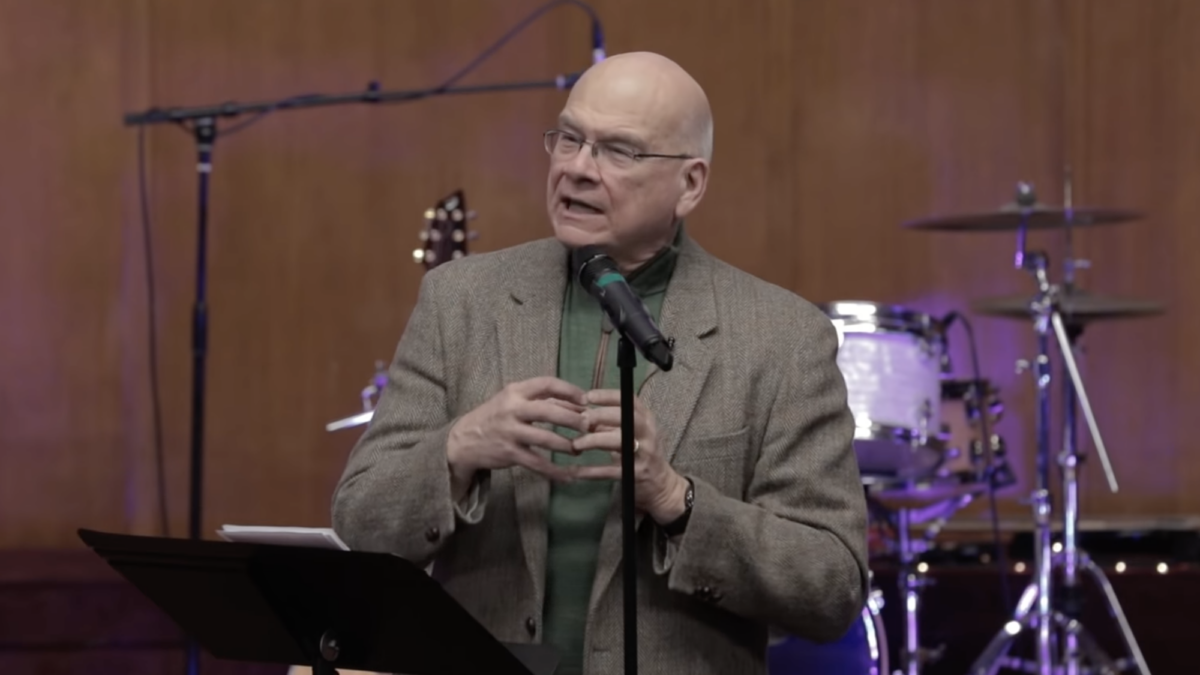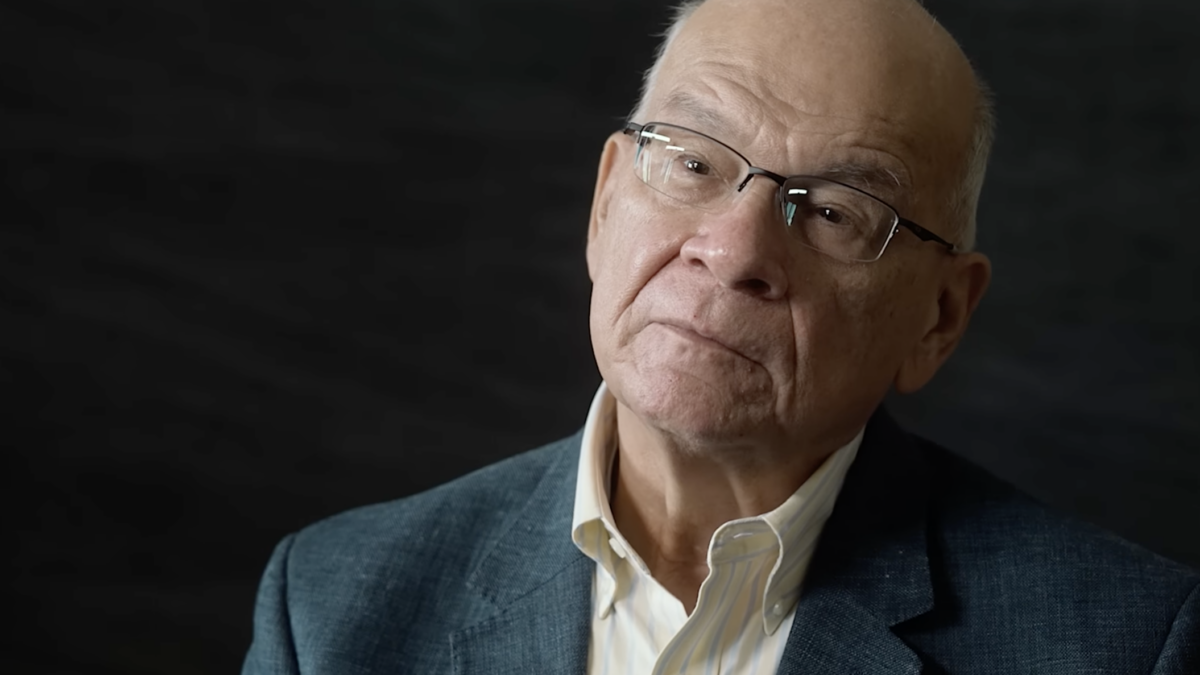
One staple of conservative conversation these days is the parlor game of cultural prognostication: What will the lunatics come up with next?
We’ve only tapped the surface of sexual deviancy, so God only knows what’s in store for us there. Diaper-wearing men diagnosed—back when the notion of “disordered behavior” meant something—with paraphilic infantilism? “Dommes” walking their leather-clad coprophiliac slaves on a leash? (I saw an article entitled, “Coprophilia: Symptom, Cause and Treatment” at a website on depression. I thought, “Awww, how cute; so 2012.”)
After last summer’s gay marriage ruling coupled with this year’s transgendered march through the institutions, you can only imagine the flavors of sadomasochistic fetishism lining up to take their turn at the bat. The natural response of “eww” that used to guide social behavior is a microagression, so it’s only a matter of time.
Identity holds a lot of promise for potential wackiness. Did I, as a disabled black lesbian, mention that you all owe me several degrees of reparations? (Write that check to the guy linked to the byline you see in your hate as a perfectly abled white male heterosexual.) Then there’s body manipulation. Those with body integrity identity disorder (there’s that cute word again) will finally have their day. A fun office pool might be to wager in what year two people surgically sew themselves together, sans middle arms and legs, in some Jungian-Gnostic attempt to reintegrate humanity’s primal binary disintegration of male/female. You see shades of the horror movies “The Human Centipede” or “Tusk”; I see an Anthony Kennedy ruling circa 2022.
This is all somewhat tongue in cheek—somewhat—but to turn to a rather serious and sad topic, cultural trends breeding the above also suggest a seismic shift in attitudes on suicide.
What’s Wrong with Suicide, Anyway?
I became an Army chaplain in part because of rising suicide rates in the military. Suicide prevention training, like so much of chaplain training, operates under a very palpable paradox defining our moment in cultural history. On one hand, we live off the residual fumes of a Christian past and enjoy certain assumptions about human life and dignity. On the other hand, we are not permitted to appeal to the source of those assumptions.
This leads to a middle-road approach that makes no one happy. The result is a mushy spirituality ticking off both the atheist soldier and the Christian who recognizes its inherent, New Agey unorthodoxy.
In this context I sometimes pose the issue this way, challenging colleagues with the question, “Why exactly are we as a nation, or the Army in particular, against suicide? What’s wrong with it?” The cynical answer is that the Army has a huge financial investment in a soldier. But obviously that answer doesn’t satisfy the deeper issue.
The answer begging to be said but that can’t be spoken is, “Because we’re basically a Christian nation, and we believe that God made us in his image and gives us dignity, and if you doubt this, consider that God became one of us. That would be He-whose-name-dare-not-be-spoken.”
The third answer forced by Christianity’s demise is the humanitarian one, as if it’s obvious at a human level suicide is wrong because… well, just because. Call it Hegel’s apotheosis: Christian ethics becomes so part of our DNA that we no longer need the church and her teaching as a third-party facilitator of those teachings. Usually this breaks down practically into an impassioned “How could you think otherwise!” combined with a sneer or two at religion’s claims, and off we go once again avoiding the easy logic of an ethical issue—be it rape, sexuality, or suicide—in a post-Christian epistemological universe.
An Emblem of Individual Expression
Simply speaking, in a post-Christian world where the residual fumes of its influence are wearing off, and where what it means to be human has been reconstructed, we find ourselves bereft of the ethical edifice needed to deal with the question. Certainly other cultures have sanctioned suicide, such as ancient Rome or contemporary Asian societies. Labeling it a mental disease or disorder only places it on course to that slippery slope alluded to above.
Disordered from what? Ordered nature? Again, what a cute notion. When psychiatry took homosexuality off its list of sexual disorders in 1973 against all obvious reproductive biology, it launched a thousand deconstructions of natural order and therefore a thousand reclassifications of “disorders” and “diseases.” Only someone tone-deaf to what’s going on in culture will fail to understand how we’re only a few logical steps away from suicide being an act of personal expression.
Some of you reading this are thinking, “We’re already there.” You’re basing this on stories like this one out of the Netherlands, which demonstrates pointedly the terminus of a humanitarian ethic purposely untethered from Christianity. There, suicide is considered a human rights issue. A New Yorker article from last summer gives a peek under the hood at how suicide will become a civil rights issue: “In Belgium, euthanasia is embraced as an emblem of enlightenment and progress, a sign that the country has extricated itself from its Catholic, patriarchal roots. [Suicide doctor Wim] Distelmans, who was brought up as a Catholic and then rejected the Church, told me that his work is inspired by an aversion to all forms of paternalism. ‘Who am I to convince patients that they have to suffer longer than they want?’ he said.”
Who are you indeed? You’re nothing. Just one among a world of individuals who have no societal obligation to others. Certainly if you’re not able to define what sex, color, or height means for another person, you’re definitely not able to define the worth of life itself, to say nothing of what entails unbearable life for another person.
Framed in the grand cosmic drama defining our Gnostic age—where each individual is an autonomous, trapped self striving to break free from the structures of an evil system (such as the “patriarchalism’ and “paternalism” referenced above)—the new understanding of civil rights dictates maximal accommodation of society to the self-indulgent desires of any individual, which in turn dictates tearing down old cultural structures. Nothing less would thwart one’s liberation from whatever “system.”
The most basic liberation, the ultimate moment of Gnostic salvation, is the permanent release of spirit from body. The old Christian notion of redemption, the sanctifying implications of God becoming flesh and what it means for our own flesh and the earth itself—well, we saw what happened to that silly idea. Another old structure on the wrong side of history.
Complete ‘Liberation’ Is Disorienting
What does all this mean? In Belgium, it means a “life-ending clinic” has “tested the boundaries of ‘unbearable suffering’” by including chronic depression among its reasons for assisted suicide. Thirteen percent of Belgians euthanized in 2014 did not have a terminal condition. Non-terminal reasons for suicide include autism, anorexia, borderline personality disorder, chronic-fatigue syndrome, partial paralysis, blindness, manic depression, and a condition suicide doctors dub “tired of life.”
“Tired of life” recalls the Medieval Gnostic virtue of melancholia (or depression) and yes, it’s a virtue, because it’s the only appropriate response to a systemically evil world. It drives the individual’s desire to escape this world and return to Mother Sophia. It opens one’s eyes to the hopelessness of an irredeemable world. The rise in suicide and drug overdose—which is suicide by the scenic route—among middle-aged white males doesn’t portend good things for a millennial generation already “stressed out” and wanting nothing more than to ride the Big Wheel back into the safety of mother’s womb.
Suicide rates are increasing even as Christianity and church attendance decline. This fact challenges the promise that our new cultural openness will increase overall happiness. One of the reasons given for the high rate of LGBT suicide, for instance, is societal alienation. Make it acceptable, they said, and those suicides would go down. Well, they’re no longer alienated. Will the suicide rate go down?
My guess is no, precisely because fundamentally disordered behavior cannot lead to true happiness. Nature is ruled by laws, and when those laws are broken, there are natural consequences. Freedom without law is disorienting and meaningless. Put another way, when the self’s desires are put above all else, yes, there will be a tiredness with life, because the self is ultimately boring (see this great Federalist article), and we weren’t meant to be autonomous.
But when those natural consequences kick in, will our neo-Gnostics run back to natural law and order? Will they run back to the redeemer of our humanity? If current trends are indicative, probably not. Many would rather forswear all possibility of happiness in this world at all, embrace their melancholy, and seek escape. Suicide will be a transcendent activity, an event.
There’ll be suicide parties; sad, yes, but something the good people of the world will accept because the one committing suicide needed to be “true to himself.” One interpretation of the cultural history for the past 50 years is how the fringe and cultic has become mainstreamed, and vice versa. Remember all those suicide cults of the ’90s? Their mainstreaming moment awaits.
How long will it be before culture will ask parents and others to accept the suicide of family members the same way they are asked to accept their sexual or gender expressions, or other “life choices”? When we respond with current anti-suicide attitudes, how long before that response is deemed paternalistic, patriarchal, and therefore hateful?
I give it less than a decade.









